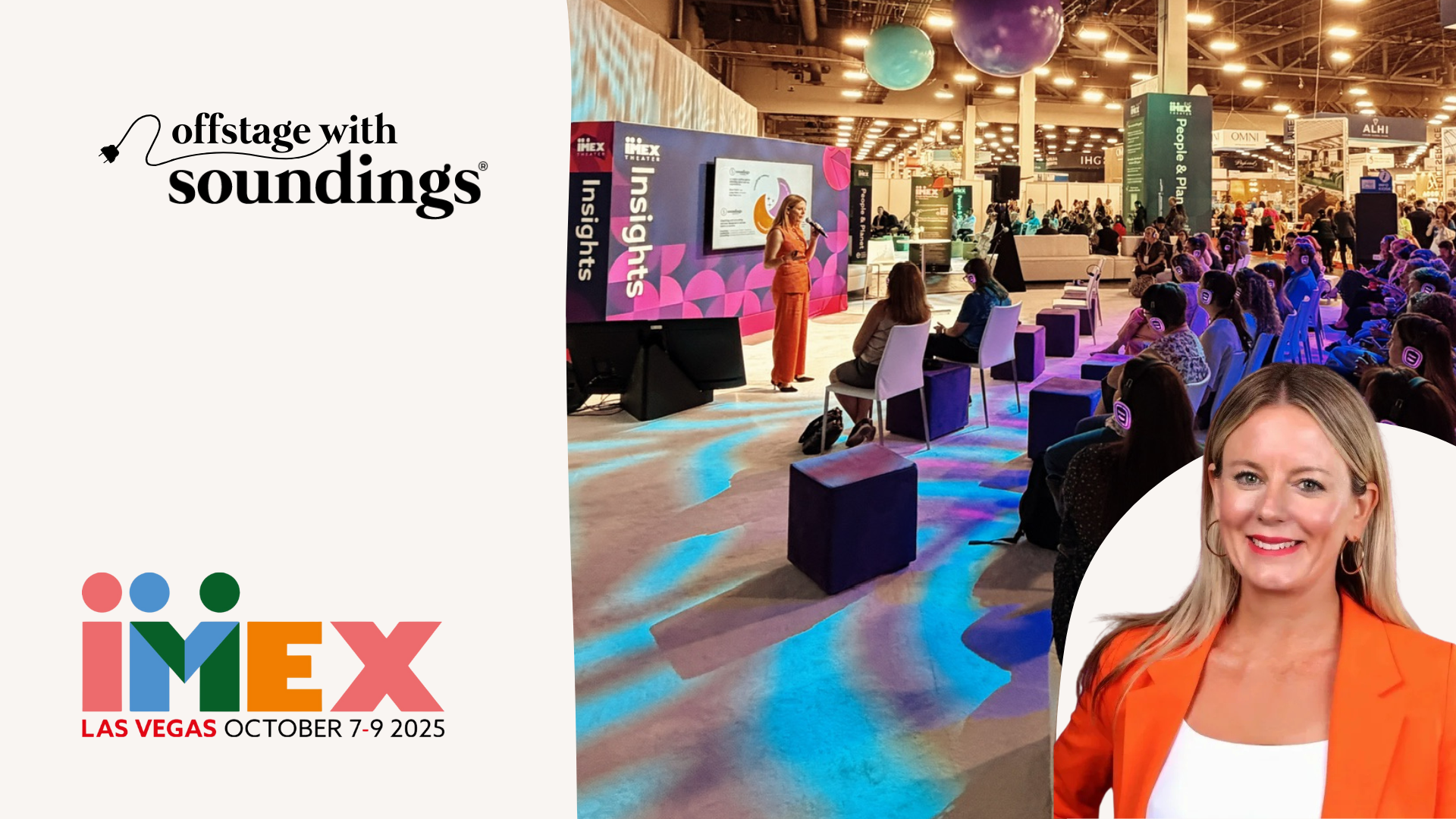A human-centered guide to engaging with AI
An Offstage with Soundings® recap of our session at IMEX Las Vegas 2025
By Tracy Judge, Founder & CEO, Soundings
At IMEX Las Vegas 2025, I presented the Phase II results of the Soundings AI Impact on Workforce Dynamics in Business Events research study. My session, "A human-centered guide to engaging with AI," used the latest data-backed insights to help event professionals explore the transformative role of AI across the events industry.
Here were the key takeaways:
Dramatic Increase in Future AI Adoption Intentions
While current AI usage in the events industry increased modestly from 59% to 64%, the intention to adopt or increase AI usage in the next year jumped dramatically by 150%, from 30% to 75% of respondents, indicating significant momentum building.
Immediate Application Accelerates Learning and Saves Time
Rather than waiting for formal training, professionals should start experimenting with AI immediately by asking whether AI can help with current tasks. Even brief interactions often save exponential time while building practical understanding.
Events Industry Significantly Lags Behind in AI Adoption
The business events industry is substantially behind other industries in AI adoption, creating a competitive disadvantage as customers and employers in other sectors advance their AI capabilities and expect faster, more efficient service delivery.
Team-Based AI Usage Drives Higher Productivity
The most significant productivity gains from AI come when teams work together with AI tools rather than individuals using them in isolation. Collaborative AI usage enhances team efficiency and accelerates learning through shared experiences and knowledge.
AI Engagement is Highly Personal and Individual
AI adoption success depends on individual communication styles and personal approaches, similar to how people interact differently with team members. The key is finding authentic ways to engage with AI that produce desired outcomes rather than following a one-size-fits-all approach.
Soft Skills Become Critical for Future Success
The events industry identifies creativity, innovation, adaptability, and flexibility as the most important skills for the future, which challenges many professionals in an industry traditionally strong in execution but weaker in strategic and adaptable thinking.
Strategic Workforce Planning Adapts to AI Capabilities
Organizations are increasingly pausing to evaluate roles during natural attrition, using these moments to redesign positions around AI capabilities and improved workflows rather than simply replacing departing employees with identical roles.
Shift from Content Creation to Operational AI Applications
While the events industry initially adopted AI primarily for marketing content creation, there's a growing recognition that the greatest impact will come from using AI for event operations, where it can create meaningful efficiencies and improved workflows.
Skills Disruption Timeline Demands Immediate Action
Nearly 40% of current workplace skills will become irrelevant by 2030, meaning professionals must begin upskilling now to maintain their value in the workforce. The shift from 100% to 60% relevance requires proactive learning to fill the gap.
Thank you to everyone who joined my session during IMEX Las Vegas. Click here to download the full Phase II report to dive deeper and consider how to prepare yourself for an AI-enabled future of work.
I would love for you to share your comments, learnings, and progress below!
Tracy Judge, MS, CMP
CEO & Founder, Soundings
Follow me on LinkedIn

